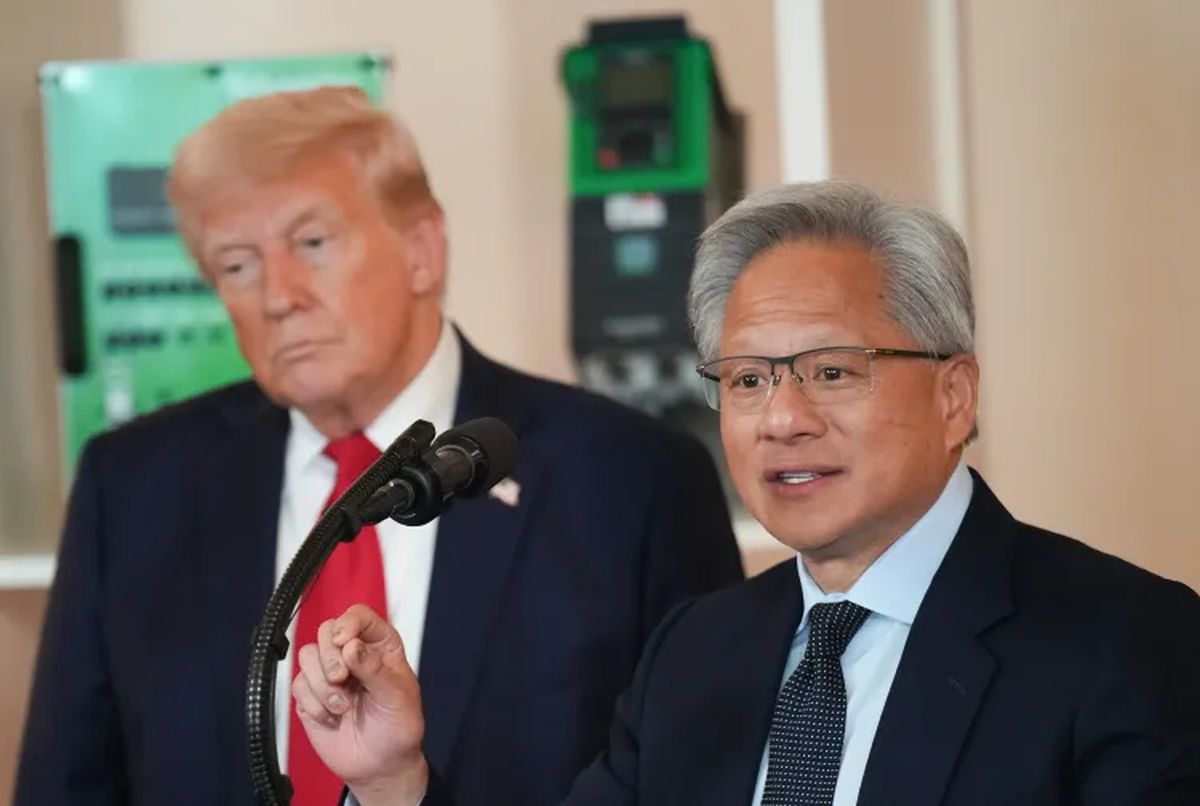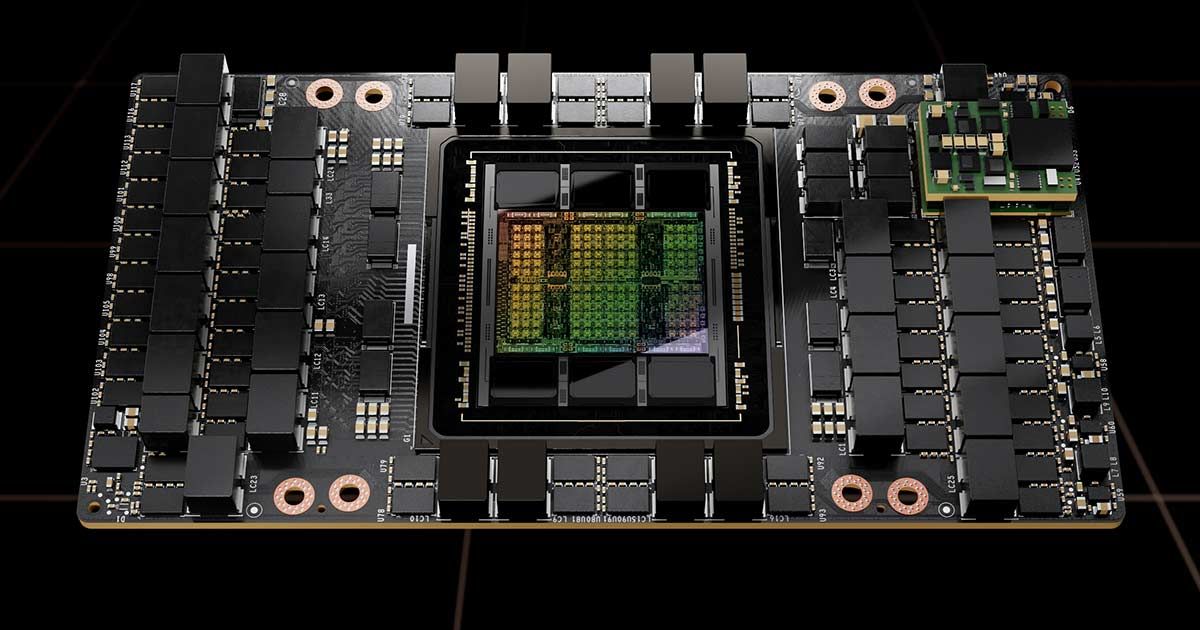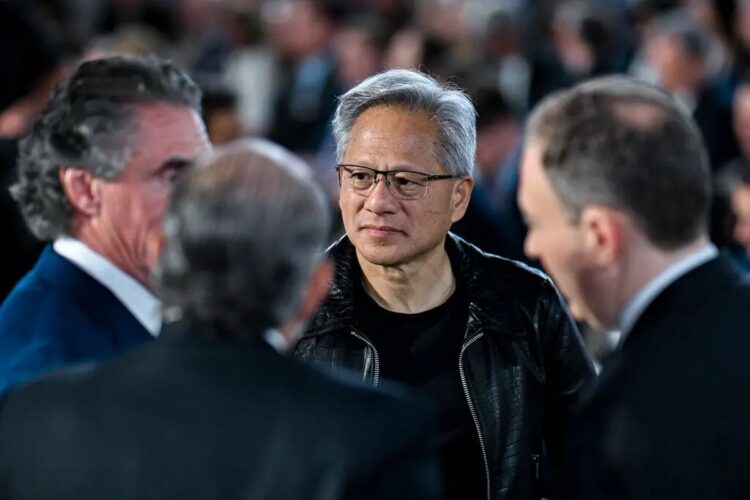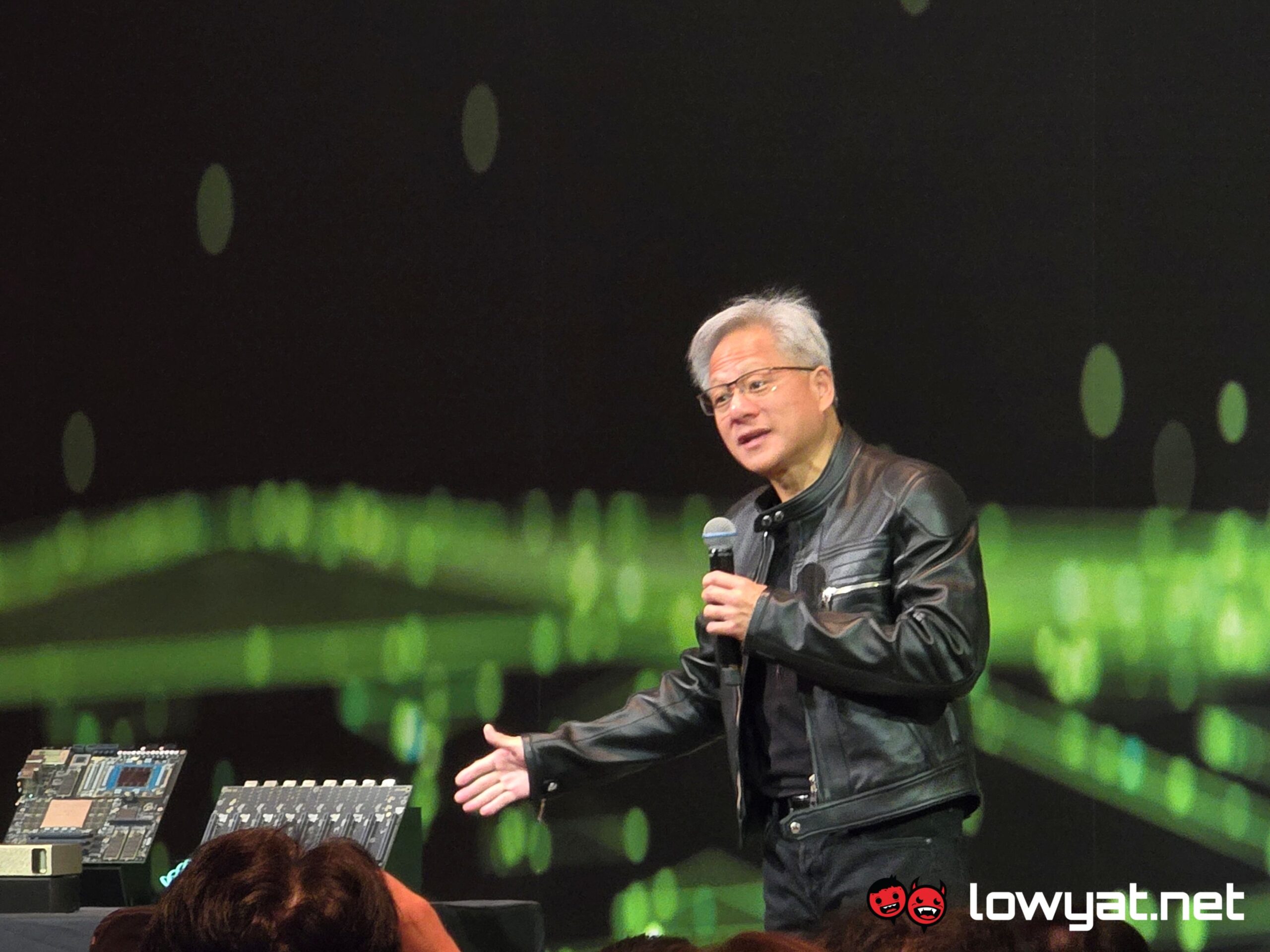NVIDIA. AMD, and the Trump administration have inked an unprecedented deal, whereby the former will give the US government 15% of its revenue from sales of its AI chips to China. Jensen Huang, CEO of NVIDIA, reportedly reached a deal with President Trump in a private meeting, supposedly just days before the US Commerce Department granted the company the license to sell its goods.
According to The New York Times, President Trump initially asked Huang for a 20% cut of the sales, but after negotiations, it was lowered to 15%. “I said, ‘Listen, I want 20% if I’m going to approve this for you, for the country,’” Trump said. “And he [Huang] said, ‘Would you make it 15?’ So we negotiate a little deal.”

At current, the license given to NVIDIA allows its to ship out its H20 and AMD’s MI308 Chips. Both are stripped-down versions of their more powerful counterparts, the H20 being derived from the H100 AI GPU, and the MI308 a variant of Red Team’s MI300 Instinct Series.
The deal also couldn’t come at a better time, for China at least. The Western superpower just agreed to extend its “China tariff” by a further 90 days to 10 November, a move that the Asian giant reciprocated, in order to prevent a surge in price for goods that would further affect other countries. Sadly, that extension is only for China, and the US tariffs for other countries went into effect last week.

It also shouldn’t come as a surprise that this isn’t the first time Trump has tried to get a “cut” from sales, final or potential. You may remember that during his first term, he pushed to have ByteDance divest its US portion of TikTok to a US-based company, or fan an outright ban in the country. The sale is technically still ongoing – rather than push for the ban, he’s now simply extending deadlines – but there was a time when both Microsoft and CostCo were looking like potential buyers. It was also during this time that Trump said that he wanted a cut from the sale.
Trump’s deal with NVIDIA isn’t going unprotested either. Critics from within the US government argue that allowing such a deal opens up the door for China to further its ambition of futher advancing its military with AI capabilities. “Even with scaled-down versions of flagship (chips), China could spend and buy enough of them to build world-leading, frontier-scale AI supercomputers,” said Saif Khan, former director of Technology and National Security at the White House National Security Council under former President Joe Biden, who heavily restricted U.S. AI chip exports abroad. “This could directly lead to China leapfrogging America in AI capabilities.”
This, by the way, comes after a Chinese state media-affiliate on WeChat claimed that NVIDIA’s chips were “no good” and that they were riddled with backdoors, and potential spyware. It’s a claim that the Green GPU maker categorically and vehemently denies, going so far as to make a public statement on the matter.



